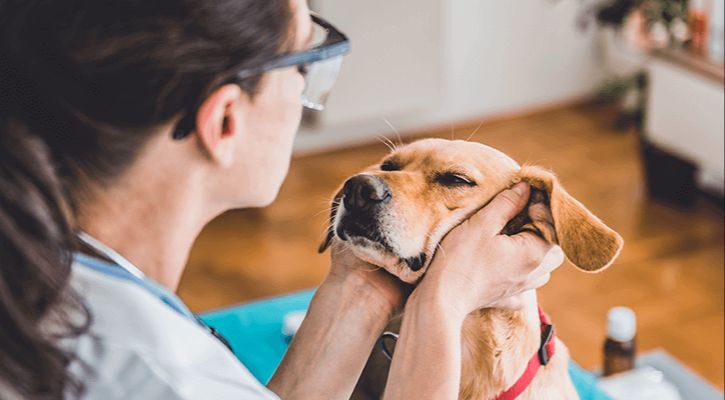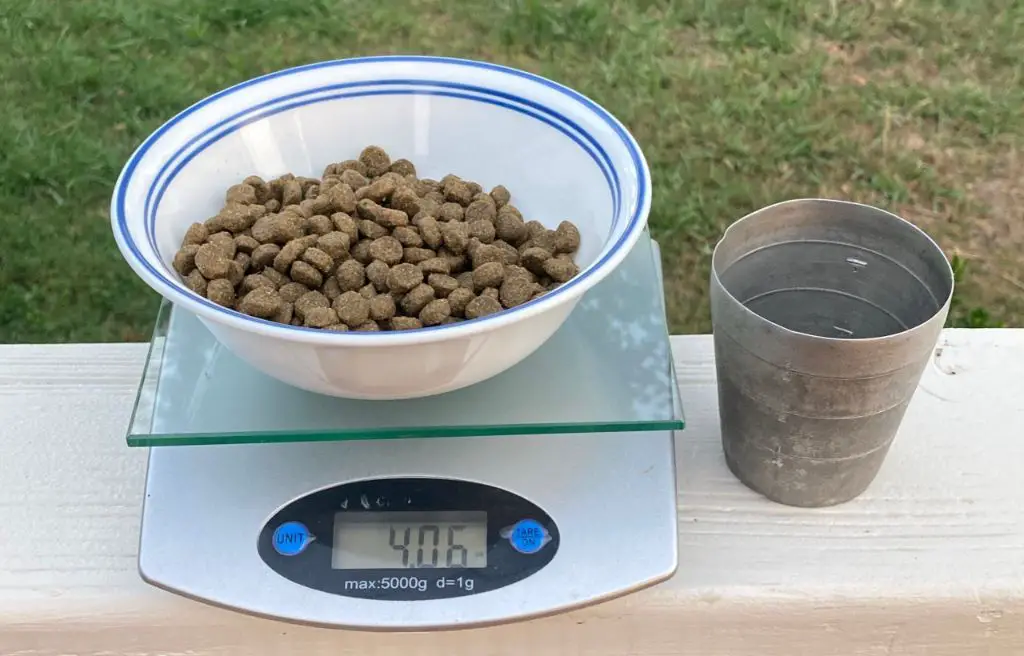What is Black Tongue in Dogs?
Black tongue in dogs, also known as melanin pigmentation, refers to dark spots or discoloration on a dog’s tongue, which can range from a deep brown or black color to blue-black (source: https://www.rover.com/blog/black-tongue-dog/). It is caused by extra melanin production in the tongue tissue. While a pink tongue is considered normal in most dogs, some breeds are predisposed to having black pigmentation on their tongues.
This condition is completely harmless in most cases. The dark spots or overall discoloration do not cause any pain, discomfort, or health issues for dogs. It is simply an aesthetic trait in certain breeds. However, in some cases black tongue can indicate an underlying illness such as anemia or cyanide poisoning, which causes a deficiency in vitamin B12 or damage to the tongue tissue (source: https://www.womansday.com/life/pet-care/g30771752/dogs-with-black-tongues/).
The main symptom of harmless black tongue in dogs is dark pigmentation on the tongue ranging from blue-black to black spots or patches. No other symptoms are present if the condition is benign. But if the dog has a vitamin deficiency or illness causing its black tongue, other symptoms may be observed like lethargy, appetite changes, pale gums or breathing issues (source: https://www.rover.com/blog/black-tongue-dog/).
Causes of Black Tongue
There are several potential causes for black tongue in dogs, including:
Nutritional Deficiencies
Deficiencies in certain vitamins and minerals can lead to the development of black tongue in dogs. The most common nutritional deficiencies associated with this condition are:1
- Riboflavin (vitamin B2) deficiency
- Niacin (vitamin B3) deficiency
- Pantothenic acid (vitamin B5) deficiency
- Pyridoxine (vitamin B6) deficiency
These B vitamin deficiencies impair normal turnover of epithelial cells on the tongue, leading to abnormal pigmentation and a black discoloration of the tongue.
Prolonged Antibiotic Use
Extended use of broad spectrum antibiotics like tetracycline can disrupt the normal microflora balance in a dog’s mouth and on their tongue. This allows overgrowth of pigment-producing bacteria which leads to black discoloration of the tongue.2
Heavy Metal Poisoning
Exposure to heavy metals like lead and mercury can also cause black discoloration of a dog’s tongue. These heavy metals get deposited in the epithelial tissues, leading to abnormal pigmentation.3
Diagnosing Black Tongue
Diagnosing black tongue in dogs begins with a full physical exam and review of the dog’s medical history by the veterinarian. The vet will look closely at the tongue, noting the location, color, and extent of any black or darkened areas. They may also check the gums, teeth, lips, and inner cheeks for signs of ulceration or abnormal pigmentation.
If the cause isn’t readily apparent from the physical exam, the vet may recommend blood tests. A complete blood count can check for signs of infection or inflammation. Blood chemistry tests help evaluate organ function, electrolyte levels, and hydration status – deficiencies that could contribute to black tongue. Testing thyroid levels may also be advised as hypothyroidism can cause pigment changes in the mouth.

In some cases, a biopsy of the tongue may be needed for microscopic examination of the tissue. This can allow identification of fungal infections, cancer, or other causes that may not produce obvious visual changes.
Once an underlying condition is identified, the vet will recommend appropriate treatment to resolve the black tongue along with the associated disease.
“Causes, Diagnosis and Treatment of Black Hairy Tongue in Dogs – VCA Hospitals.”
https://vcahospitals.com/know-your-pet/causes-diagnosis-and-treatment-of-black-hairy-tongue-in-dogs
Treatment for Black Tongue
The main treatment for black tongue caused by nutritional deficiencies is to supplement the dog’s diet with the missing vitamins and minerals. This may include adding a multivitamin, vitamin B supplements, or supplements containing iron, niacin, riboflavin, and pyridoxine (vitamin B6). According to one source, “supplementation helps resolve the [black tongue] quickly – generally within 1 to 2 weeks.”
If the black tongue is caused by antibiotic treatment, stopping or switching the antibiotic medication may help resolve the issue. As one source explains, “Discontinuing the offending drug is recommended to see if the condition resolves.”
In severe cases, chelation therapy may be used to remove excess heavy metals from the body that are causing black tongue. However, this intensive treatment is only used when heavy metal toxicity is confirmed through blood tests. According to veterinarians, “Chelation therapy can successfully manage heavy metal intoxication when caught early.”
Overall, supplementing the dog’s diet with vitamins and minerals is the most common and effective treatment for black tongue caused by deficiencies. Ensuring the dog receives adequate nutrition can prevent the problem from occurring in the first place as well.
Sources:
https://www.rover.com/blog/black-tongue-dog/
https://barfindia.com/blogs/blog/dogs-tongue-color-and-illness
Preventing Black Tongue
There are a few key things dog owners can do to help prevent their dog from developing black tongue due to nutritional deficiency:
Feed a high quality dog food – Ensuring your dog eats a nutritionally balanced diet is crucial for preventing deficiencies that can lead to black tongue. Choose a premium commercial dog food that contains optimal levels of vitamins, minerals, and other nutrients. Follow feeding guidelines based on your dog’s age, breed, and activity level. If feeding homemade food, consult your vet to ensure proper nutritional balance.
Routine vet checkups – Annual vet exams allow detection of any emerging health issues, including nutritional deficiencies. Your vet can analyze your dog’s overall nutrition and recommend supplements if needed. Bloodwork helps identify deficiencies before they progress.

Avoid prolonged antibiotic use – Antibiotics kill off beneficial bacteria in the gut, which can hinder nutrient absorption over time. Only give antibiotics when absolutely necessary and under veterinary guidance. Consider probiotic supplementation during and after antibiotic treatment.
With proper nutrition and veterinary care, most dogs can avoid developing black tongue caused by deficiencies. However, some congenital or hereditary factors may also play a role, especially in breeds prone to black tongue pigmentation.
Prognosis for Dogs with Black Tongue
The prognosis for dogs with black tongue caused by necrosis is generally good if treated early. According to one source, “The prognosis of tongue necrosis in dogs is excellent if treated promptly” (AnimalWised). If black tongue is caught early and the underlying nutritional deficiency or other cause is addressed, the dog should make a full recovery.
However, black tongue can lead to more systemic issues if left untreated. As the tongue tissue dies, it can become infected or abscessed. The infection may spread from the mouth to other parts of the body. Severe cases that are not treated promptly can even be fatal. That’s why it’s crucial to see the vet as soon as any tongue discoloration is noticed. With early veterinary care and correcting the deficiency, most dogs recover well from black tongue.
Nutritional Deficiencies Causing Black Tongue
Black tongue in dogs is often caused by nutritional deficiencies, especially of certain B vitamins. The main deficiencies linked to black tongue disease include:
Riboflavin Deficiency
Riboflavin, also known as vitamin B2, is an important vitamin for dogs that helps convert food into energy. A riboflavin deficiency can cause blackening of the tongue, along with other symptoms like cracked skin and diarrhea https://pubmed.ncbi.nlm.nih.gov/32491660/. Providing a riboflavin supplement or adjusting the diet to include more riboflavin-rich foods like organ meats, dairy products, and leafy greens can help resolve black tongue caused by a riboflavin deficiency.
Niacin Deficiency
Niacin, also known as vitamin B3, is another B vitamin that dogs need for proper metabolism and energy production. A niacin deficiency can result in black tongue disease in dogs, which is why niacin was historically referred to as the “anti-black tongue factor” https://www.oxfordreference.com/display/10.1093/oi/authority.20110803095510435. Foods rich in niacin like meat, fish, and whole grains can help restore normal niacin levels.

Vitamin B12 Deficiency
Finally, a vitamin B12 deficiency has also been associated with black tongue disease in some dogs. Vitamin B12 supports nerve function, energy, and red blood cell production. Feeding dog foods with vitamin B12 or providing a supplement can help reverse black tongue caused by vitamin B12 deficiency. Organ meats, fish, eggs, and dairy products are good natural sources of B12 for dogs.
Common Dog Breeds Affected
Certain dog breeds are more likely to have black tongues than others. Some of the most common dog breeds with black tongues include:
Retrievers
Retrievers, including Labrador Retrievers and Golden Retrievers, can sometimes have black spots or markings on their tongues (Dog Breed Info). This is considered normal pigmentation in retrievers. However, retrievers are not usually prone to getting “black tongue” syndrome caused by nutritional deficiencies.
German Shepherds
German Shepherds can also sometimes have black spotting or black marks on their tongues. Like retrievers, this pigmentation is considered normal for the breed and not necessarily a sign of black tongue syndrome (Dog Breed Info).
Poodles
Black tongues can occur in poodles as well. Toy and miniature poodles are more prone to having black pigmentation on their tongues. But like other breeds, black spotting alone does not mean they have black tongue syndrome (Dog Breed Info).
When to See a Veterinarian
Some symptoms of black tongue warrant a veterinary visit. According to Rover, if your dog has a black discoloration of the tongue along with other concerning signs, you should consult your vet.
Specifically, look out for the following symptoms in combination with a black tongue:
- Changes in appetite – if your dog seems to have lost interest in food or is eating less than normal, it could signal an underlying issue.
- Lethargy – if your once energetic pup seems very low energy and inactive, it requires medical attention.

While a black tongue on its own may not be serious, when paired with these secondary symptoms it could indicate a greater health problem. Contact your veterinarian promptly if you notice any combination of a darkened tongue and appetite or energy changes in your dog.
The vet will likely run tests to check for potential causes like anemia, heavy metal toxicity, autoimmune disease, fungal infection, or nutritional deficiency. Early diagnosis and treatment is key to getting your dog the care they need.
Conclusion
In summary, black tongue in dogs is caused by a deficiency in niacin (vitamin B3) or riboflavin (vitamin B2). The condition leads to inflammation and discoloration of the tongue and mouth. While it may appear alarming, black tongue is easily treated through dietary supplementation of the deficient vitamins. By providing a nutritionally balanced diet and maintaining your dog’s oral health, black tongue can be readily prevented. If you notice any signs of black tongue in your dog, take them to the vet right away for diagnosis and treatment. Early intervention can quickly resolve symptoms and prevent complications. With proper care and nutrition, dogs with black tongue generally have an excellent prognosis.
The key takeaways are that black tongue results from a nutritional deficiency, so prevention focuses on providing a balanced diet. Seek veterinary attention as soon as any discoloration or inflammation appears, since early treatment leads to the best outcome. Addressing the underlying deficiency and maintaining good oral hygiene will help ensure your dog remains happy and healthy.
